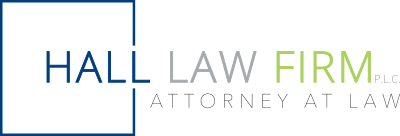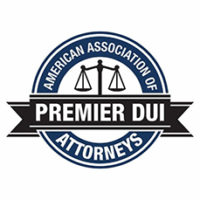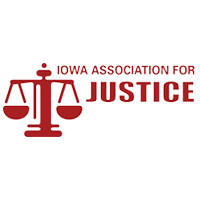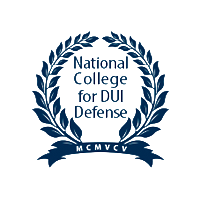The Supreme Court of the United States recently heard arguments in Walker v. Texas Div., Sons of Confederate Veterans, Inc., on March 23, 2015. The State of Texas has a license plate scheme where private citizens or groups may submit designs for specialized state-issued license plates that, upon approval by the Texas Department of Motor Vehicles Board (DMVB), may be put in circulation where private citizens/motorists may purchase for an additional fee. The proceeds of which generate revenue for state agencies, charitable, and nonprofit organizations. A private nonprofit group known as the Sons of Confederate Veterans (SCV) submitted a specialty license plate design with the emblem of the confederate battle flag; however, the board in making its decision voted unanimously against issuing the license plate with the confederate battle flag. Subsequently, SCV now wants the Supreme Court of the United States to order the State of Texas to issue a license plate bearing the confederate battle flag. This is a case of first impression as the Supreme Court has never addressed whether state specialty license plates are “government speech” or “private speech.”
The petitioner representing the State of Texas, framed one of the issues as whether messages and symbols on state-issued specialty license plates qualify as government speech, which, in that case, would not be subject to any requirement of viewpoint neutrality. Meaning the State under the direction of the board could pick and choose which messages could appear on state-issued specialty license plates. Petitioner’s main argument was that the speech that appears on state-issued Texas license plates is “government speech” and relied on the decisions in Johanns v. Livestock Marketing Ass’n (2005) and Pleasant Grove v. Summum (2009), collectively, for that proposition. Because if the speech on state-issued specialty license plates is government speech, then the First Amendment does not apply. Petitioner contended that the Respondent (i.e. Sons of Confederate Veterans) was not vindicating any freedom of speech rights; rather, the respondents were trying to coerce the State of Texas into issuing a message on its license plates that it does not wish to convey. Texas went on to argue that an individual motorist is protected by the Constitution from being forced to transmit the State’s ideological message on a license plate per the holding in Wooley v. Maynard (1977). Similarly, an individual motorist should not be able to force the State to convey a license-plate holder’s message.
In terms of forum analysis, or whether this case should instead be decided as a matter of the public forum doctrine, the State of Texas emphasized the mere fact that a private business or nonprofit organization assisted in the design of a specialty license plate, or that private motorists are willing to purchase state-approved license plate designs for the privilege, does not necessarily convert the State’s specialty-plate program into a “forum” for private speech where it loses its prerogative to control the messages, symbols, or viewpoints. The State used the holdings in Johanns and Rosenberger v. Rector & Visitors of the Univ. of Va., (1995) to support the proposition that a State is not prevented from relying on the government-speech doctrine merely because it solicits assistance from nongovernmental sources.
The respondent, however, framed the issue differently and argued for a different standard as opposed to government speech. The respondent framed the issue as whether the State of Texas committed viewpoint discrimination when it rejected SCV’s submitted state specialty license plate bearing the confederate flag? In it’s brief, it concluded that this case should not be decided as a matter of “government speech,” but rather it should be decided as a matter of public forum doctrine, more specifically a limited forum. Respondent argued that because the State of Texas had gone about issuing an open invitation to everybody to create and submit to them public designs for specialty license plates, it therefore created a limited public forum for these license plates. Because it created a limited public forum, it cannot discriminate based on the speaker’s viewpoints. The reason is because specialty plates are designed by private parties and are therefore private speech. The First Amendment applies to private speech and restrictions on private speech must be viewpoint neutral meaning the DMVB cannot discriminate based on the speaker’s viewpoint. That is, the State cannot pick and choose which messages appear or do not appear on the specialty license plates.
This is another case with the potential to apply the emerging, newly minted government speech-doctrine. The last case that was decided as a matter of government speech was Pleasant Grove v. Summum (2009), and before that the seminal case of Johaans v. Livestock Marketing Assn. (2005). In Summum, the Court addressed the issue of whether the Free Speech Clause entitled Summum, a private religious group, to demand that the municipality of Pleasant Grove permit it to erect a monument in the city park where other privately donated monuments resided. The Supreme Court held that while the park was a traditional forum, the display of monuments on the park premises was not expression for which the forum analysis applied. Rather, the Court determined that the placement of permanent monuments in the city park was a form of government speech. Government speech is not subject the heightened scrutiny under the Free Speech Clause of the First Amendment. The First Amendment restrains government from regulating private speech, but it does not regulate government speech. The Court in coming to its conclusion in Summum quoted Johanns for the proposition that the government can speak without undergoing First Amendment scrutiny.
The issue in Johanns, was whether a federal program that finances generic advertising to promote an agricultural product was the Government’s own speech and therefore exempt from First Amendment scrutiny. The Beef Promotion and Research Act of 1985 provided for a federal policy of promoting the marketing and consumption of “beef and beef products” using funds raised by an assessment on cattle sales and importation while directing the Secretary of Agriculture to implement this policy. As a part this policy, the Secretary was to impose a $1-per-head assessment (or “checkoff”) on all sales or importation of cattle and a comparable assessment on imported beef products. This assessment was to be used to fund beef-related projects, including promotional campaigns such as promotional projects authorized by the Beef Act using familiar trademarked slogan “Beef. It’s What’s for Dinner.” Further, the law directs the Secretary to appoint the Beef Board which is geographically representative of various beef producers—whom are responsible for convening an Operating Committee.
The respondents (i.e. those opposing the advertising) who originally sought this action are two associations whose members collect and pay the checkoff, and several individuals who raise and sell cattle subject to the checkoff—they sued the Secretary, the Department of Agriculture, and the Board in Federal District Court. The respondents amended their complaint after the Court’s decision in United States v. United Foods (2001) where it held that a mandatory checkoff for generic mushroom advertising violated the First Amendment—noting that the mushroom program closely resembled the beef program.
The respondents argued (those who brought the action in opposing the check off) the speech in question was not government speech because it was not controlled by nongovernmental agencies, such as the Beef Board and Operating Committee. In actuality, the Court determined that the message, or speech in question, was controlled by the Federal Government—essentially even though the government solicits assistance from nongovernmental sources (i.e. the Beef Board and Operating Committee) in developing specific messages does not necessarily preclude the government from relying on the government-speech doctrine because, ultimately, the government sets the overall message to be communicated and approves very word that is disseminated. Therefore, Supreme Court held that generic advertising funded by targeted assessment on beef producers was “government speech,” not susceptible to First Amendment compelled-subsidy challenge.
Commentary:
It is unclear what standard of government speech the Court will apply if it so chooses to apply the government-speech doctrine. It will be interesting to see how the Court decides the issue when it submits its opinion whether it decides this case as a matter of government speech or whether it will apply limited forum under the public forum doctrine, or whether it will come up with an entirely new standard for deciding such a case since it raises very unique factual issues. Several of the Justices had hinted to an evolving traditional public forum doctrine, or possibly a new standard for determining whether speech is government speech.
Supreme Court Argument Transcript
Petitioner’s Brief
Respondent’s Brief
Petitioner’s rebuttal Brief






